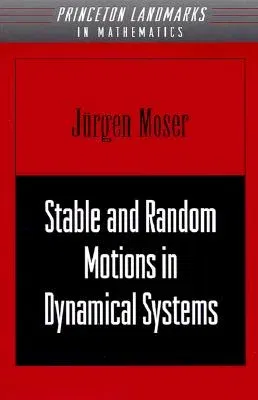Jurgen Moser
(Author)Stable and Random Motions in Dynamical Systems: With Special Emphasis on Celestial Mechanics (Am-77) (Revised)Paperback - Revised, 6 May 2001

Qty
1
Turbo
Ships in 2 - 3 days
In Stock
Free Delivery
Cash on Delivery
15 Days
Free Returns
Secure Checkout

Part of Series
Princeton Landmarks in Mathematics and Physics
Part of Series
Hermann Weyl Lectures
Part of Series
Princeton Landmarks in Mathematics
Print Length
216 pages
Language
English
Publisher
Princeton University Press
Date Published
6 May 2001
ISBN-10
0691089108
ISBN-13
9780691089102
Description
Product Details
Author:
Book Edition:
Revised
Book Format:
Paperback
Country of Origin:
US
Date Published:
6 May 2001
Dimensions:
23.39 x
15.6 x
1.22 cm
ISBN-10:
0691089108
ISBN-13:
9780691089102
Language:
English
Location:
Princeton
Pages:
216
Publisher:
Series:
Weight:
331.12 gm